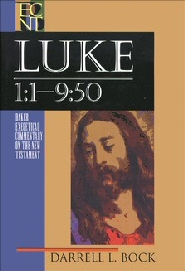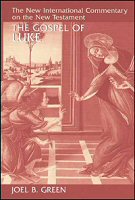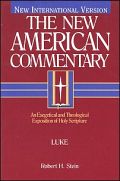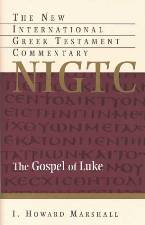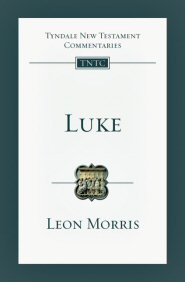Best Resources on Luke
"Luke proclaims Jesus as the Savior of the world. This Gospel presents Jesus as the climactic turning point in world history, and it sets the stage for Luke’s second volume—the Acts of the Apostles. In both books, Luke focuses on the mission of Jesus, which continues and expands with the Church, out from Jerusalem to the world (Luke 24:47). In Jesus, everyone—Jewish and non-Jewish alike—may come to salvation.
Early church tradition holds that both the Gospel of Luke and the book of Acts were written by Luke the physician, Paul’s frequent companion during his missionary journeys (Col 4:14). Early church history also says Luke was a Gentile (non-Jewish) and came from Antioch—where Paul spent a great deal of time (Acts 11:25–26; 15:35). These biographical details fit with the Gospel’s familiarity with Graeco-Roman culture and its emphasis on Gentiles becoming followers of Christ. The Gospel also uses very sophisticated Greek, including technical terms for ailments, suggesting that a well-educated person (like a doctor) authored it.
Luke identifies his primary audience and purpose in the opening verses: He is writing to Theophilus, to give him confidence regarding the events of Jesus’ life (Luke 1:3–4). The identity of Theophilus is unknown; since the name means “lover of God,” it’s possible that Luke uses it generically to address any believer. However, it’s more likely that he is writing to an individual named Theophilus, who may be the sponsor of the work. In any case, features in the Gospel suggest that Luke assumed both Jews and Gentiles would read it. He seems to address people curious about Christianity and its relationship to Judaism, often utilizing Old Testament Scriptures and motifs."
—Faithlife Study Bible, Lexham Press
Everything You Need to Study & Teach Luke
Expository Preaching Kits are curated resources all focused on helping you teach a single book of the Bible—keeping you prepared without weighing you down.
Best Commentaries on Luke
Darrell L. Bock, Baker Exegetical Commentary on the New Testament (BECNT), Baker, 1994–1996, 2,150
Darrell L. Bock offers students of the New Testament a substantive yet highly accessible commentary. With extensive research and thoughtful chapter-by-chapter exegesis, Bock leads readers through all aspects of the third Gospel—sociological, historical, and theological. The result is a guide that clearly and meaningfully brings the first part of this important New Testament book to life for contemporary readers.
- Level: Advanced
- Type: Expository
Joel B. Green, New International Commentary on the New Testament (NICNT), Eerdmans, 1997, 1,020 pp.
This highly original commentary on the Gospel of Luke is unique for the way it combines concerns with first-century culture in the Roman world with understanding the text of Luke as a holistic, historical narrative. Focusing primarily on how each episode functions within Luke’s narrative development, Joel B. Green provides countless fresh perspectives on and new insights into the third Gospel. His extended examination of Luke’s literary art and Luke’s narrative theology allows the Evangelist to address clearly and convincingly both ancient and contemporary readers.
- Level: Intermediate
- Type: Expository
Robert H. Stein, New American Commentary (NAC), B&H, 1992, 656 pp.
See afresh the message and ministry of Jesus Christ in this scholarly, theological, and yet practical exposition of Luke's narrative. The work is up to date, clearly written, and applicable to sermons. Verse-by-verse commentary follows analysis of the context. The Lukan message is then presented in a clear manner for the reader. Stein bridges the distance between the first century and the twentieth century through focusing on the theological message of Luke, thus enabling believers in the contemporary Church to understand Luke's Gospel for today.
- Level: Intermediate
- Type: Expository
I. Howard Marshall, New International Greek Testament Commentary (NIGTC), Eerdmans, 1978, 928 pp.
In this acclaimed commentary—the first in the English language on the Greek text of Luke since those of J. M. Creed in 1930 and H. K. Luce in 1933—renowned New Testament scholar I. Howard Marshall calls special attention to the theological message of Luke the Evangelist. His primary purpose is to exegete the text as it was written by Luke, so that the distinctiveness of Luke's Gospel may be seen.
- Level: Advanced
- Type: Technical
Leon Morris, Tyndale New Testament Commentaries (TNTC), InterVarsity Press, 1988, 370 pp.
The Gospel of Luke presents many unique pictures of Jesus. We see him in his father's house as a child, deliberately associating with the poor and the disreputable, and in communion with the Holy Spirit. But we also see the larger picture of Jesus setting out resolutely for Jerusalem to fulfil God's plan for the world. With a critical awareness of scholarly discussions and a practical attentiveness to both the text and the reader, Leon Morris carefully places the themes of Luke's Gospel within the context of God's plan for all people.
- Level: Basic
- Type: Devotional
Best Books on Luke
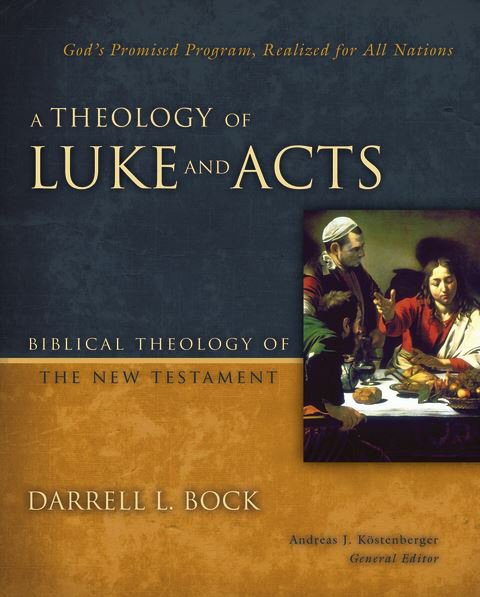
A Theology of Luke and Acts: Biblical Theology of the New Testament
Darrell L. Bock draws from his years of experience in biblical studies to examine Luke and Acts and write an informative resource that’s invaluable to those seeking holistic biblical understanding. A Theology of Luke and Acts identifies and evaluates the contribution of Luke, both to the New Testament and to the Bible as a whole. Bock aims to demonstrate Luke’s significance and influence in the development of theological discourse.
Learn more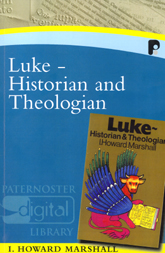
Luke: Historian and Theologian
Taking into account both Luke’s Gospel and Acts, Marshall makes three suggestions. First, that Luke’s faith rested on the events associated with the work of Jesus and the apostles, hence the historical accounts found in his writings. Second, that the key concept in Luke’s theology is “salvation,” understood as both a present possession and a foretaste of future blessings. Third, that Luke was an evangelist or preacher concerned to lead people to Christian belief on the basis of a reliable record of the historical facts.
Learn more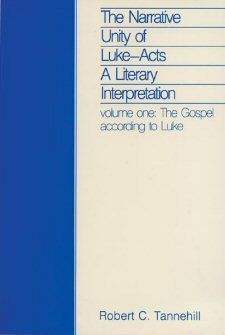
The Narrative Unity of Luke-Acts: A Literary Interpretation, vol. 1: The Gospel according to Luke
Robert C. Tannehill shows how the narrative contributes to the impact of Luke’s literary whole. The study further shows that Luke’s use of recurring words, patterns of repetition and contrast, irony, pathos, and many other features of this narrative contribute to the total fabric of Luke’s masterpiece.
Learn more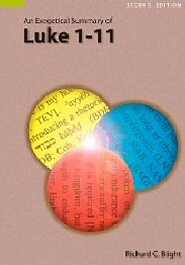
An Exegetical Summary of Luke 1–11, 2nd. ed.
How can the task of biblical exegesis be fruitful and meaningful when commentaries and lexicons provide contradictory interpretations and seem to support opposing translations? The Exegetical Summaries Series asks important exegetical and interpretive questions—phrase-by-phrase—and summarizes and organizes the content from every major Bible commentary and dozens of lexicons.
Learn more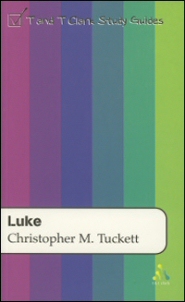
T&T Clark Study Guides: Luke
In Luke, Tuckett discusses the authorship, date, and text of the Luke's Gospel. With the main focus in this guide on Luke’s view of eschatology—salvation history—and the person and work of Jesus, Tuckett also tackles Luke’s positions on Jews, gentiles, and Judaism. Departing from Luke’s theology, the book concentrates on the concrete ideas set forth in the Gospel regarding the Christian life and practice. One major theme prominent in Luke concerns poverty and riches, and Tuckett spends a chapter on the subject.
Learn moreBest Courses on Luke
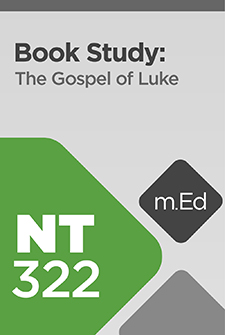
Mobile Ed: NT322 Book Study: The Gospel of Luke (10 hour course)
In NT322, Dr. Darrell L. Bock walks through the Gospel of Luke. He looks at the major themes in the book, including discipleship, faithfulness to God, and the priority of the kingdom of God. Dr. Bock explains important background information and provides an overview of the narrative flow of the book as he shows how Jesus works in the context of Luke’s narrative.
Learn more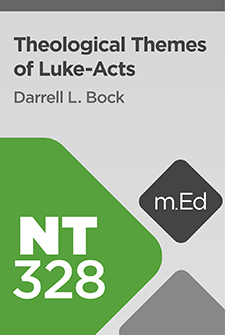
Mobile Ed: NT328 Theological Themes of Luke-Acts (3 hour course)
In NT328, Dr. Darrell L. Bock will walk you through ten theological themes of the unified work Luke-Acts. You will learn what Luke-Acts has to say about salvation, the kingdom, Christians in society, the future of Israel, and so much more. By the end of this course, you will be well acquainted with major themes that are woven throughout the biggest literary work in the New Testament.
Learn more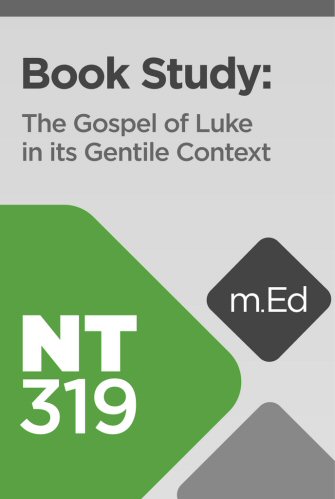
Mobile Ed: NT319 Book Study: The Gospel of Luke in a Gentile Context (10 hour course)
Dr. Craig Evans examines how Luke transformed the Jesus story into something that gentiles in his time could appreciate. Luke wanted his readers to know that his account was based on early sources—credible eyewitness testimony that he himself had accessed for the composition of this Gospel. Remember, this was a Jewish story, one about Jesus the Jew, fulfiller of the Jewish Scriptures, and was part of the history of the people of Israel. So, what relevance did it have for gentiles? Luke wanted the gentiles to know that this Jewish Messiah, Jesus of Nazareth, was their Savior too. And that is still true today—he’s our savior also. Luke’s other emphases—election, the unity of the Church, proper use of wealth, and what constitutes true righteousness—remain valid for the Church today as well.
Learn more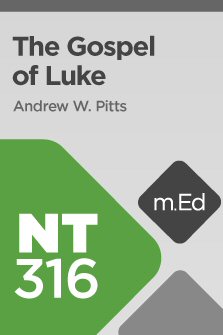
Mobile Ed: NT316 Book Study: The Gospel of Luke (13 hour course)
In this course, Dr. Andrew W. Pitts works through the Gospel of Luke in short segments. He answers questions such as: What did Luke intend the reader to know? How should we read this Gospel? Who was Luke? And what message can modern readers take from this important book?
Learn more